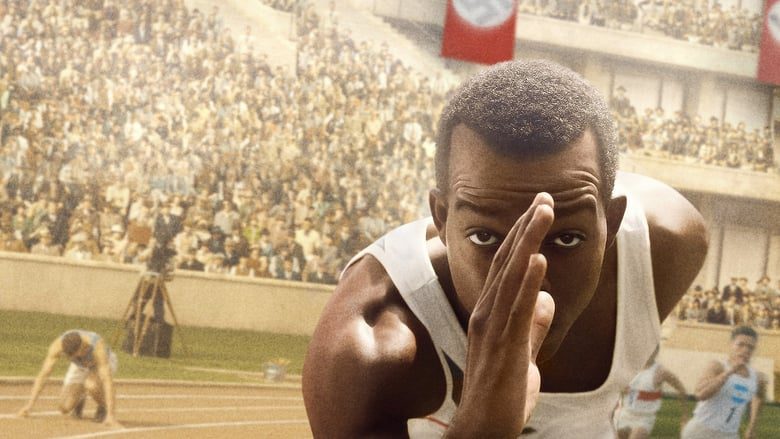
What Is Race (2016) About?
“Race” is a biographical sports drama film released in 2016. Directed by Stephen Hopkins, the film primarily revolves around the life of Jesse Owens, an African American athlete who participated in the 1936 Summer Olympics in Berlin, Germany.
The film chronicles Owens’ journey from his humble beginnings as a young athlete in Ohio to becoming one of the most iconic figures in track and field history. It delves into the racial tensions and discrimination Owens faced in the United States, especially during the era of segregation and Jim Crow laws.
As Owens trains and competes, the film also explores the political and social context of the time, particularly the rise of Nazi Germany and Adolf Hitler’s propaganda machine. Despite facing immense pressure and prejudice, Owens goes on to defy expectations and win four gold medals in the Olympics, becoming a symbol of triumph over adversity and a beacon of hope for many.
“Race” not only celebrates Owens’ remarkable achievements on the track but also highlights the broader significance of his victories in challenging racial stereotypes and breaking down barriers in the world of sports.
Reasons to Watch It
There are several compelling reasons to watch “Race”:
- Inspiring Story:
- The film tells the inspiring true story of Jesse Owens, a remarkable athlete who overcame racial discrimination and adversity to achieve greatness on the world stage. His journey serves as a testament to the power of perseverance, courage, and determination.
- Historical Significance:
- “Race” provides valuable insights into the historical context of the 1936 Berlin Olympics and the broader socio-political landscape of the time. It sheds light on the challenges faced by African Americans during the era of segregation and highlights the impact of Owens’ achievements on race relations.
- Exceptional Performances:
- The film features strong performances from its cast, including Stephan James as Jesse Owens, Jason Sudeikis as Owens’ coach Larry Snyder, and Jeremy Irons as Avery Brundage, the head of the International Olympic Committee. Their portrayals bring depth and authenticity to the characters they depict.
- Compelling Sports Drama:
- “Race” offers thrilling sequences of track and field events, capturing the intensity and excitement of Olympic competition. Whether you’re a sports enthusiast or not, the film’s dynamic portrayal of Owens’ athletic prowess is sure to captivate audiences.
- Relevant Themes:
- The themes explored in “Race,” such as racism, equality, and the pursuit of excellence, remain relevant today. The film encourages viewers to reflect on issues of social justice and the importance of standing up against prejudice and discrimination.
- Cinematic Quality:
- With its well-paced storytelling, impressive cinematography, and stirring musical score, “Race” delivers a compelling cinematic experience that is both entertaining and thought-provoking.
Overall, “Race” offers a poignant and compelling narrative that celebrates the indomitable spirit of Jesse Owens and reminds us of the power of sports to transcend barriers and inspire positive change.
Is the Movie a Real or Fictional Story?
“Race” is based on a real story. It portrays the life of Jesse Owens, an actual historical figure and one of the most celebrated athletes of the 20th century. The film chronicles Owens’ journey leading up to and during the 1936 Berlin Olympics, where he made history by winning four gold medals in track and field events. While the movie may take some creative liberties in its portrayal of certain events or characters, the core story and the achievements of Jesse Owens are grounded in historical fact.
Is It Critically Panned or Acclaimed?
The film received mixed to positive reviews from critics, but it wasn’t overwhelmingly acclaimed. While some praised the performances, particularly Stephan James as Jesse Owens, and the film’s portrayal of Owens’ historic achievements, others criticized it for being somewhat formulaic and not fully exploring the complexities of the racial and political dynamics of the time.
Overall, “Race” can be considered neither critically panned nor acclaimed, but rather falling somewhere in between with a moderate level of critical reception.
What Does the Movie Explore?
“Race” explores several themes and aspects of Jesse Owens’ life and the historical context in which he competed:
- Racial Discrimination and Prejudice:
- The film delves into the racial discrimination and prejudice that Jesse Owens faced both in his personal life and as a competitive athlete, particularly in the United States during the era of segregation.
- Athletic Achievement and Excellence:
- It highlights Owens’ remarkable athletic prowess and his journey to become one of the greatest track and field athletes in history. The film showcases his determination, talent, and the challenges he overcame to achieve success.
- Olympic Games and Politics:
- Against the backdrop of the 1936 Berlin Olympics, the film explores the political tensions of the time, including Adolf Hitler’s propaganda efforts to showcase Aryan superiority and the controversy surrounding Owens’ participation in the Games amid calls for a boycott.
- Friendship and Mentorship:
- “Race” portrays Owens’ relationships with key figures in his life, including his coach Larry Snyder (played by Jason Sudeikis), who mentored and supported him, and fellow athlete Luz Long, whose friendship transcended racial barriers.
- Legacy and Inspiration:
- The film reflects on Owens’ enduring legacy as a trailblazer in sports and civil rights, inspiring generations with his achievements and breaking down racial barriers in athletics.
Overall, “Race” provides insight into Jesse Owens’ remarkable journey, the societal challenges he confronted, and the significance of his achievements both on and off the track.
Memorable Moments in the Movie
“Race” features several memorable moments that highlight the triumphs, struggles, and emotional depth of Jesse Owens’ journey. Here are some notable scenes from the film:
- Owens’ Record-Breaking Long Jump:
- One of the early scenes in the film depicts Jesse Owens breaking the long jump world record at the Big Ten Championships in 1935, a moment that establishes his exceptional athletic ability and sets the stage for his future success.
- Training Montages with Coach Larry Snyder:
- Throughout the film, there are several training montages showcasing the intense and grueling workouts Owens undergoes under the guidance of his coach, Larry Snyder. These scenes highlight Owens’ dedication to his craft and the mentorship he receives from Snyder.
- Owens’ Performance at the 1936 Berlin Olympics:
- The climactic moments of the film revolve around Jesse Owens’ historic performance at the 1936 Berlin Olympics. Particularly memorable are his victories in the 100-meter dash, 200-meter dash, long jump, and 4×100-meter relay, where he defies racial prejudice and political pressure to claim gold medals and make history.
- Interaction with Luz Long:
- Owens’ interaction with German athlete Luz Long during the long jump competition at the Olympics is a poignant moment in the film. Despite being competitors, Long extends a gesture of friendship and sportsmanship to Owens, challenging the racial stereotypes of the time.
- Confrontation with Avery Brundage:
- A tense and dramatic scene occurs when Owens confronts Avery Brundage, an American Olympic official, over the treatment of African-American athletes and the issue of racial discrimination within the U.S. Olympic Committee. This scene highlights Owens’ courage and conviction in speaking out against injustice.
- Return to Segregated America:
- After his triumph at the Olympics, Owens returns home to a segregated America, where he is celebrated as a hero but still faces racial discrimination. This sobering moment underscores the complexities of Owens’ experience and the ongoing struggle for racial equality.
These memorable moments collectively capture the essence of Jesse Owens’ journey, from his remarkable athletic achievements to his resilience in the face of adversity.
Streaming Platforms to Watch the Movie From
“Race” is available for streaming on various platforms. However, availability may vary depending on your region. Here are some streaming platforms where you might find the movie:
- Amazon Prime Video:
- “Race” may be available for rent or purchase on Amazon Prime Video. Users can check the platform’s library to see if it’s currently offered.
- iTunes/Apple TV:
- You can rent or purchase “Race” through the iTunes Store and watch it on Apple TV.
- Google Play Movies & TV:
- Similar to iTunes, Google Play Movies & TV offers the option to rent or buy digital copies of “Race” for streaming.
- YouTube Movies:
- YouTube Movies often provides rental or purchase options for a wide range of films, including “Race.”
- Vudu:
- Vudu is another platform where you can rent or buy digital copies of movies, including “Race.”
- Netflix/ Hulu/ Disney+:
- While “Race” might not be available on these streaming platforms in all regions, it’s worth checking their libraries periodically as content availability may change over time.
- Specialized Streaming Services:
- Some specialized streaming services focusing on documentaries, sports, or independent films might also offer “Race” as part of their catalog.
Before streaming, I recommend checking the current availability and pricing on these platforms in your region, as it may have changed since my last update.






